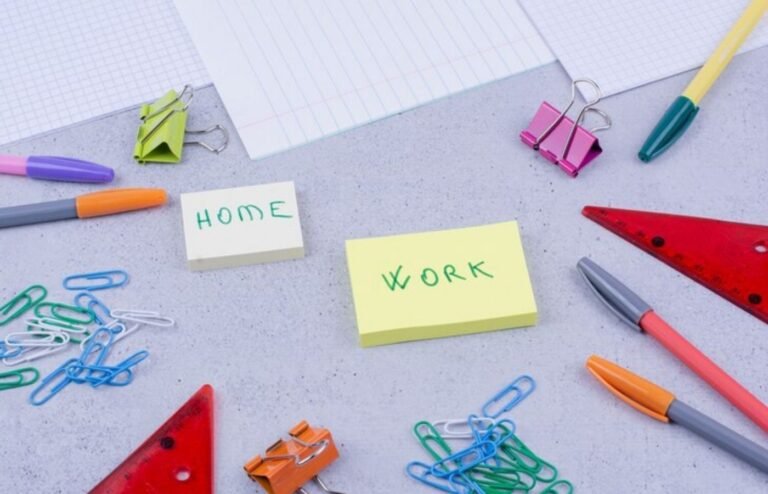If you want to improve your financial situation, create wealth, and achieve financial freedom, then you need to get organized with your finances.
There are many different strategies and techniques that you can use when it comes to organizing your finances and budgeting. The key is to find a system that works for you — one that allows you to track your income and expenses quickly and easily.
In this article, we’ll look at some of the best methods for organizing your finances and budgeting ideas so that you can take control of your money!
Set financial goals and prioritize spending
Good budgeting means setting financial goals and being intentional about how you allocate and prioritize your spending. When you set short, medium, and long-term goals you’ll have something to work toward instead of just aimlessly spending money.
Prioritizing what matters most to you is key, that way when it comes time to make budget decisions, you can choose the appropriate actions.
From there, determine what items are necessary and which ones might need to be cut. These could include subscriptions or memberships that you don’t need or want anymore. Remember though that cutting costs doesn’t always mean cutting out individual expenses entirely – simply be strategic about how much or how often an expense is needed.
Lastly, if there’s anything left in your budget for extra fun activities or things to buy outside of necessities – only then should take advantage of it! This way, your budget stays in alignment with your financial goals without breaking the bank.
Create a budget and track all income and expenses
Creating a budget is the foundation of any financial planning and monitoring strategy. Without it, you won’t be able to make well-informed decisions.
When creating your budget, make sure to track all income and expenses in order to evaluate your current financial situation and forecast future needs.
Grab a pen and paper or open up Excel, have patience and start recording all money that comes into your life. Include salaries, bonuses, gifts, investments returns and any other income sources too!
Likewise for expenses – take note of everything that’s going out from rent/mortgage payments to food and leisure activities. Knowing exactly where every cent is being allocated will impress upon you the need for budgeting even more accurately!
Having an actual written record not only helps you keep better track of expenses but also serves as a useful tool for making educated saving and spending decisions in the future.
Use a budgeting app or spreadsheet to monitor progress
Using a budgeting app or spreadsheet are excellent ways to stay organized as well as easily monitor your financial progress. It can help you get started and track your expenses month after month, so you always know exactly where your money goes.
Budgeting apps and spreadsheets make it easier to keep track of multiple bank accounts, investments, loans, income sources, and other financial items. When you have everything in one place, it’s much easier to keep an eye on your finances and see when something might be off balance.
Plus, these tools let you create customizable budgets tailored specifically to your needs. You can even set up reminders for upcoming bills or transfer funds between accounts with a click of the mouse.
When setting up a budgeting tool or spreadsheet, make sure to include all your bills—not just the regular ones like rent or groceries—but also less predictable costs like vet visits, auto repairs or family vacations!
Limit impulse purchases and save for larger expenses
Are you an impulse buyer? Do you buy things on a whim and then regret it later? It’s time to control those impulses before they destroy your budget!
The way to do this is by setting a strict limit on impulse purchases. Instead of mindlessly spending money at the checkout counter, be thoughtful and make sure you actually need the thing you’re about to purchase.
Even better, once you’ve set your limit on impulse buying, start saving up for larger expenses. You’ll be able to pay your larger bills with cash or consolidate them into one affordable monthly payment. Plus, when you save up for those bigger expenses, it brings peace of mind that the money is there when you need it most.
Having an emergency fund is a great way to make sure that when life throws surprises at you, financially speaking, that you can manage them without having to resort to debt or paying late fees. Saving up for larger expenses gives you more financial freedom in the future as well!
Reduce monthly expenses by negotiating bills and cutting subscriptions
Reducing your monthly expenses is the quickest and simplest way to save money. It doesn’t take much effort to call up the companies you pay bills to and ask for a discount.
While it may be intimidating, if you consistently try and negotiate with all your bills, you’ll be amazed at how much money you can save monthly.
Often times these companies may already have deals or discounts which they are willing to offer if you just ask. Do your homework beforehand so that you’re ready with an informed negotiation strategy!
Similarly, take some time to analyze each of the subscriptions that you’re paying for on a regular basis. Cut down or eliminate any unnecessary ones and make sure those remaining subscriptions provide value. Doing this will free up lots of funds in your budget and maximize the effectiveness of your hard-earned money.
Use cash or debit cards instead of credit cards
Using cash or debit cards instead of credit cards is one of the best ways to organize your finances and budgeting strategies. When you use cash or a debit card, you can only spend what you have which prevents you from going into debt.
When it comes to using a credit card, there’s no limit as to how much you can spend. Once it’s gone, once it’s spent and incurs interest payments that can very quickly spiral out of control.
Credit cards are great if used responsibly and in moderation. However, if you don’t have the self-control or discipline to stay within your budget when using a credit card, switch to cash or debit card. They’ll help keep your finances organized while keeping your spending in line with your budget.
Furthermore, by knowing exactly how much money is available to spend at any given time with cash or debit cards, it will become easy for you to stick to a financial plan for the future that includes saving for long-term goals such as retirement.
Set aside money for emergencies and long-term savings
Set aside money for emergencies and long-term savings is an important step to organizing your finances. Putting away small amounts of money on a regular basis ensures that you’re prepared for the unexpected, such as job loss or fire damage.
This also helps you build up “rainy day funds” which can be used in the event of a major expense or simply to give yourself a financial cushion.
Long-term savings are just as important as building emergency funds. Setting aside money every month towards your retirement plan or an investment portfolio will pay off in the long run and help secure your future financial stability.
For most people, budgeting includes both short-term and long-term savings goals, so start small and increase gradually over time. You can even set up an automatic transfer to make sure that it’s done automatically each month!
Invest in a retirement plan and consider professional financial advice
Set aside money for emergencies and long-term savings is an important step to organizing your finances. Putting away small amounts of money on a regular basis ensures that you’re prepared for the unexpected, such as job loss or fire damage.
This also helps you build up “rainy day funds” which can be used in the event of a major expense or simply to give yourself a financial cushion.
Long-term savings are just as important as building emergency funds. Setting aside money every month towards your retirement plan or an investment portfolio will pay off in the long run and help secure your future financial stability.
For most people, budgeting includes both short-term and long-term savings goals, so start small and increase gradually over time. You can even set up an automatic transfer to make sure that it’s done automatically each month!
Pay bills on time to avoid late fees and damage to credit score
Paying your bills on time is an important part of staying organized with your finances and budgeting strategies. Late fees can add up quickly, causing real damage to your wallet and credit score if you don’t keep track.
Paying late adds more stress to an already stressful situation because now not only do you have to pay the original bill, but now you’ll also be paying late fees and interest as well!
The best way to stay on top of your bills is by setting reminder alarms or calendars, so that each month you know exactly when they’re due. You can also set up automatic payments so you never forget when it’s time to pay those bills!
Paying bills on time consistently should be one of your highest priorities since not doing so will cost you in the long run by damaging your credit score, creating interest and additional fees, and causing undue financial stress.
Review and adjust your budget regularly to stay on track
Once you create a budget, it’s important to stay on top of any changes or fluctuations. Take the time to review your budget regularly and adjust accordingly depending on how much money is coming in and going out each month.
It’s also essential that you check for errors and update your budget as soon as possible if you discover any issues. That way, you can ensure that every dollar is accounted for and that your finances are properly managed.
Reviewing and adjusting your budget periodically will allow you to keep track of expenses and make necessary adjustments before getting too far off track. Setting alerts or notifications can help so you don’t forget to update your budget with any new information.
Finally, it may be helpful to sit down at least once a month with a financial advisor to review your budget and make sure everything is up-to-date. Doing this can give you greater control over your finances so that you can focus on achieving future goals!
Bottom Line
Organizing your finances and budgeting strategies can be a daunting task. With the right attitude, you can ensure that your financial future will be secure and you will have greater control over your personal finances.
Budgeting is just as important as saving, so remember to create clear goals for yourself and your family before you begin organizing your finances. With a bit of discipline and knowledge, you’ll soon see the difference budgeting can make with in to manage money better.








